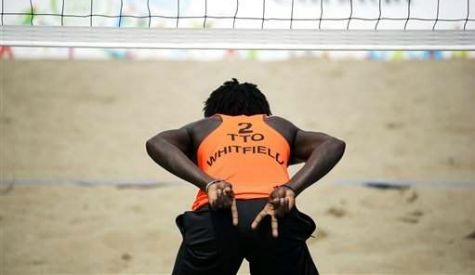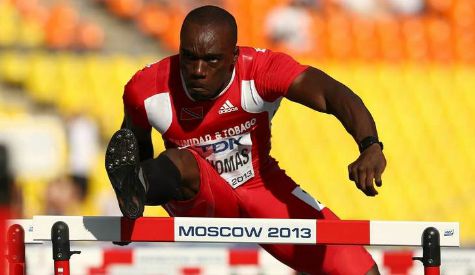 Freshly crowned Solo National Men Singles table tennis champion, Dexter St Louis, has urged Trinidad and Tobago’s younger generation of players to take charge of their individual careers if they are intent on becoming professional athletes.
Freshly crowned Solo National Men Singles table tennis champion, Dexter St Louis, has urged Trinidad and Tobago’s younger generation of players to take charge of their individual careers if they are intent on becoming professional athletes.
St Louis, who stormed through the rounds to hoist this nation’s most prized ping pong title over the weekend, insists that the sport’s local governing body - Trinidad and Tobago Table Tennis Association (T&TTT A) - is not doing enough to ensure upcoming players receive the right opportunities to further themselves competitively.
The veteran national player and five-time Caribbean Singles champion reflected on his 1992 French Antilles singles victory in Martinique, where after winning the tournament, he was immediately offered a two-year contract to the tune of 80,000 francs by SAG Cestas Club. According to the experienced right-hander, if it weren’t for him being at the top of his game at that particular tournament by himself, he may have still been stuck on the local circuit unable to captialise on opportunities to better his sporting career.
“I think the youths must take charge of their own career,” said St Louis on Wednesday. “They cannot sit down and wait for a table tennis association to do anything for them. They (youths) seem to be still thinking like back in the 80s, when the Association probably contacted another Federation for matches to be played against each other. But to me, these things don’t seem to be happening again here in Trinidad.” The 47-year-old Solo Crusaders representative however, lauded the many talents on show at this year’s National Championships and was pleased to see athletes such as Curtis Humphreys (WASA) and Aaron Wilson show great promise on the local tables. But, St Louis reiterated his opinion that further success would only come if these individual players, among others, begin to take the initiative in furthering their sporting careers and create avenues for themselves in pursuit of personal and professional excellence.
“Do not wait on the Association,” added St Louis. “The main focus is have your dreams, work on it and just keep going. Don’t depend on anyone. The youngsters must take charge of themselves. They must understand that from an early age and take charge of their career destination. It is the only way for growth in your sporting discipline.
Stop sitting down and waiting on people who know less about the game than yourselves.” Additionally, the 2013 French Professional League Men Singles winner, called on the T&TTT A executive to broaden their developmental vision of athletes and to not restrict athletes from exploring new ground and other options of growth.
St Louis and newly crowned Solo National Women Singles champion, step-daughter Rheann Chung, are scheduled to return to France tomorrow. He resumes competition in England from September 13 and will commute between there and France for the next few weeks of European competition.
“Playing professional table tennis is what I do for a living. Coming back and playing in Trinidad is always fun and there is no hard feelings towards anyone. Life goes on. I have a career outside of Trinidad and nothing is a problem for me,” concluded St Louis.
St Louis returned to the Trinidad circuit this year after a sixyear absence and has proven many critics wrong with his mesmerising return.




